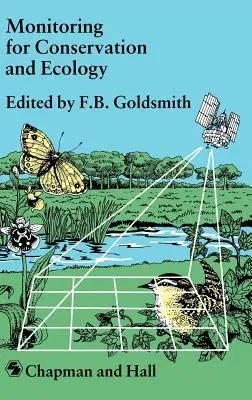F B Goldsmith
(Author)Monitoring for Conservation and Ecology (1991)Hardcover - 1991, 31 December 1990

Qty
1
Turbo
Ships in 2 - 3 days
In Stock
Free Delivery
Cash on Delivery
15 Days
Free Returns
Secure Checkout

Part of Series
Conservation Biology
Part of Series
Conservation Biology (Hardcover)
Print Length
275 pages
Language
English
Publisher
Springer
Date Published
31 Dec 1990
ISBN-10
0412355906
ISBN-13
9780412355905
Description
Product Details
Author:
Book Edition:
1991
Book Format:
Hardcover
Country of Origin:
US
Date Published:
31 December 1990
Dimensions:
23.39 x
15.6 x
1.75 cm
Genre:
Ecology
ISBN-10:
0412355906
ISBN-13:
9780412355905
Language:
English
Location:
Dordrecht
Pages:
275
Publisher:
Weight:
589.67 gm